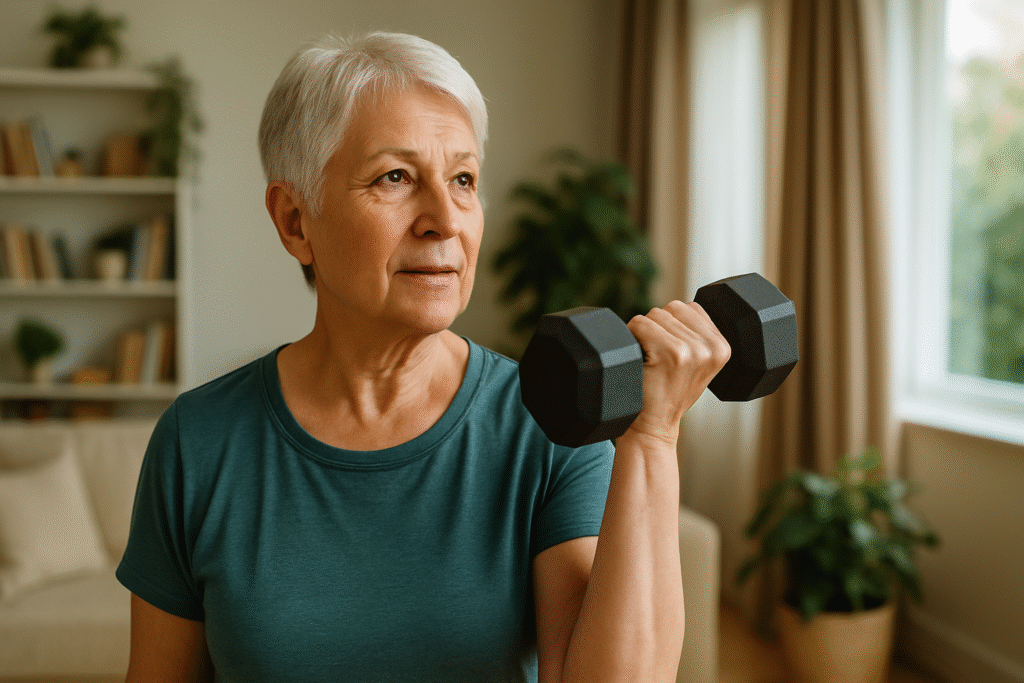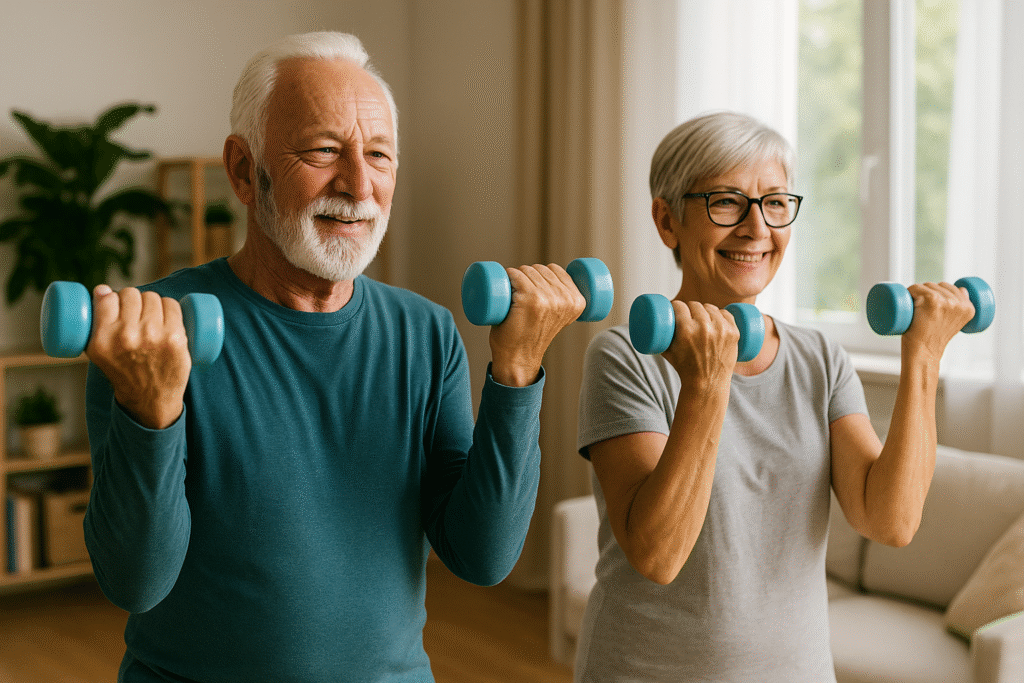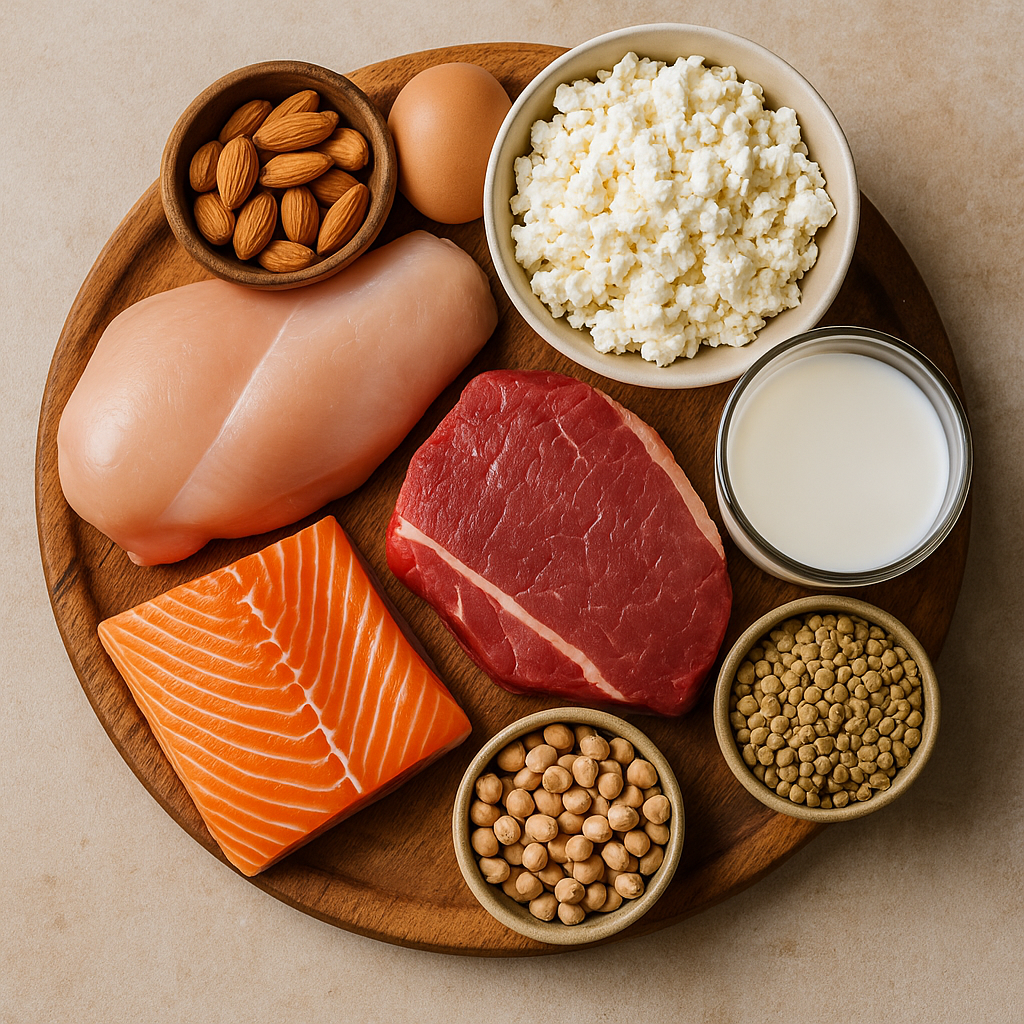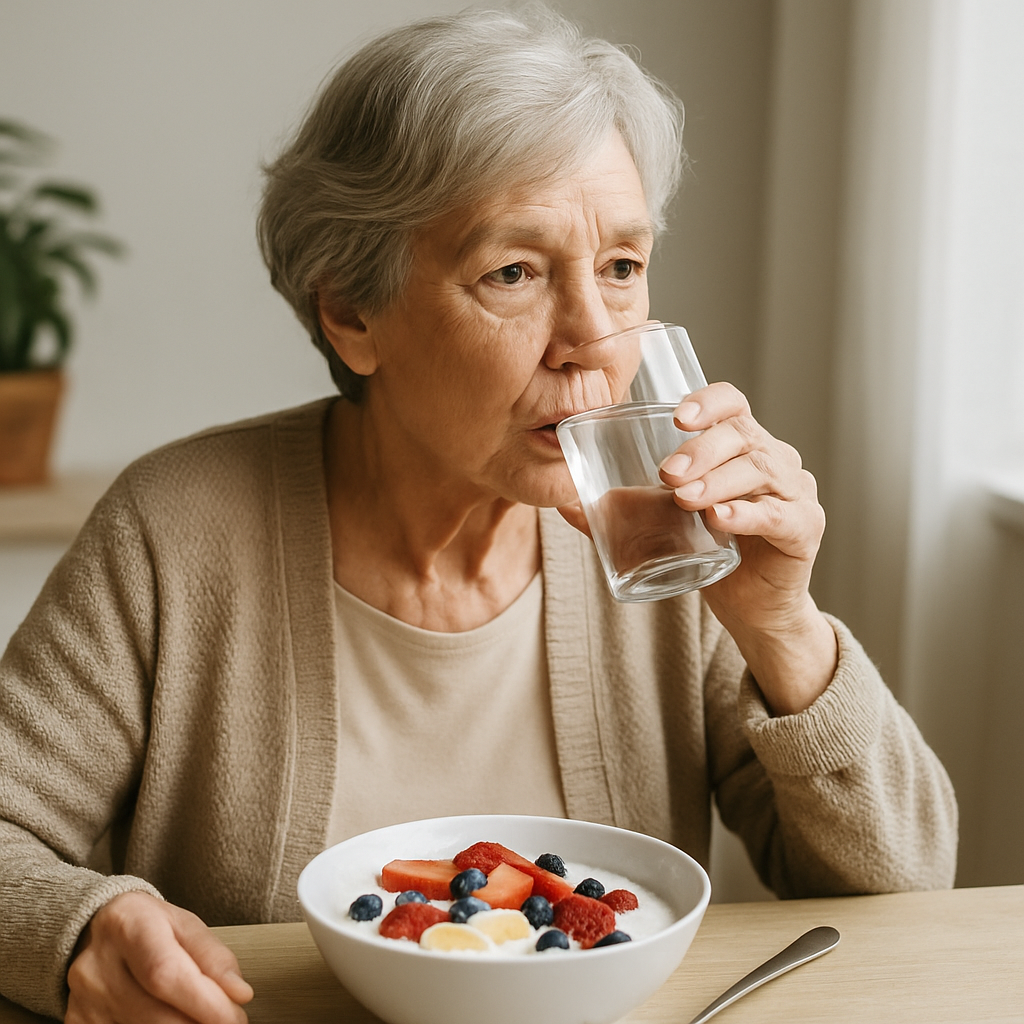
Introduction
Protein for elderly adults plays a vital role in maintaining strength, mobility, and independence. Getting enough each day helps prevent muscle loss, weakness, and fatigue that often accompany aging.
In this guide, we’ll explore how much protein seniors really need, why it matters for muscle preservation, and how to meet those needs through real food and supplements.
This post is part of our comprehensive Nutrition for Elderly: 2025 Guide to Healthy Aging & Mobility Support series.
Why Protein Matters for Seniors

As people age, the body’s ability to use dietary protein for muscle repair and maintenance declines—a phenomenon called anabolic resistance. This makes it even more important for seniors to consume adequate protein daily.
According to the National Institute on Aging, “older adults need more protein than younger adults to maintain muscle mass and strength as they age.”
Protein plays several vital roles in aging adults:
- Preserves muscle mass and strength – Prevents sarcopenia (age-related muscle loss) and supports mobility, balance, and confidence in daily activities.
- Improves wound healing – Provides the amino acids necessary for repairing damaged tissue, which is especially critical for seniors recovering from illness or injury. Learn more in our guide on how to prevent pressure ulcers in seniors.
- Supports immune health – Strengthens the body’s defense systems by helping form antibodies and enzymes that combat infection.
- Stabilizes energy and blood sugar – Slows digestion, promotes satiety, and helps prevent mid-day fatigue or post-meal energy crashes.
Research shows that maintaining adequate protein intake can significantly improve balance, reduce fall risk, and enhance recovery after illness or surgery.
How Much Protein Do Older Adults Need?
Many seniors still follow outdated dietary advice that undershoots their needs. The Recommended Dietary Allowance (RDA) for adults is 0.8 grams of protein per kilogram of body weight—but this level is often too low for older adults.
Most experts now recommend:
- 1.0–1.2 g/kg/day for healthy seniors
- 1.2–1.5 g/kg/day for those recovering from illness, injury, or surgery
- Up to 2.0 g/kg/day in specific clinical settings (e.g., wound healing, severe muscle loss)
For example, a 160-lb (73-kg) senior aiming for 1.2 g/kg/day needs about 88 grams of protein daily.
These guidelines vary slightly depending on individual health status and activity level but serve as a reliable baseline for most seniors. According to the National Institutes of Health, higher protein intake may improve recovery and functional strength in older adults.
Best Protein Sources for Seniors

Protein doesn’t have to mean just meat. Seniors benefit from a balanced mix of animal and plant proteins for variety, digestibility, and nutrient diversity.
Animal-Based Proteins
- Lean poultry, fish, and eggs – Excellent sources of complete protein for muscle repair and maintenance.
- Dairy products – Greek yogurt, cottage cheese, and milk provide high-quality protein plus calcium for bone health.
- Whey protein isolate – Easily digested and quickly absorbed, ideal for post-illness or post-exercise recovery.
Plant-Based Proteins
- Beans, lentils, and chickpeas – Provide protein and fiber that promote digestive health and fullness.
- Quinoa, edamame, and tofu – Offer complete amino acid profiles and are great for those avoiding meat.
- Nuts, seeds, and nut butters – Nutrient-dense snacks that help fill small gaps in daily protein intake.
For those struggling to eat enough protein through meals, check out our Best Protein Powders for Seniors guide for supplement options.
A strong, balanced diet also makes everyday activities easier—see how lightweight wheelchairs for seniors can help support mobility and independence when paired with good nutrition.
Seniors who need personalized guidance on meeting their protein goals can also consult a registered dietitian, who can tailor meal plans to medical conditions and individual preferences.
Timing and Distribution: Why When You Eat Protein Matters
Seniors benefit from spreading protein intake evenly throughout the day—rather than eating most of it at dinner.
Aim for:
- 25–35 grams per meal, depending on body weight and activity level
- Include protein-rich snacks like yogurt, boiled eggs, or smoothies
Even protein distribution helps maximize muscle protein synthesis, particularly when paired with light resistance exercise or daily activity. As noted by Harvard Health, this balanced approach helps preserve muscle and strength over time.
Once seniors understand how to time their protein, the next step is putting these strategies into daily practice.
Practical Tips for Meeting Protein Goals

- Add protein to breakfast: Scrambled eggs, cottage cheese, or Greek yogurt.
- Use smoothies strategically: Blend whey or plant-based protein powder with milk and fruit.
- Choose snacks wisely: Nuts, cheese sticks, or protein bars are convenient, portable options.
- Keep portions manageable: Smaller, frequent meals may be easier for seniors with reduced appetite.
- Stay hydrated: Proper hydration improves digestion and protein absorption.
For more details on staying hydrated as you age, see our post Hydration Tips for Seniors (2025 Guide)—a companion article within this series.
FAQs
1. Why do older adults need more protein?
Because the body becomes less efficient at building and repairing muscle as we age, meaning more protein is needed to achieve the same effect.
2. What’s the best source of protein for elderly adults?
Whey protein isolate or lean meats for high-quality amino acids; beans and lentils for fiber-rich plant options.
3. Can seniors get too much protein?
Rarely, unless kidney function is significantly impaired. Always check with a physician if chronic kidney disease is present.
4. How can seniors boost protein intake if they have low appetite?
Use high-protein shakes, small frequent meals, and incorporate eggs, milk, or yogurt into snacks.
Final Thoughts
Protein is one of the cornerstones of healthy aging. By eating enough high-quality protein, spreading it across meals, and staying hydrated, seniors can preserve muscle strength, reduce fall risk, and maintain independence longer.
By making protein a daily priority, seniors can stay stronger, more mobile, and independent well into later years.
Part of our ongoing Nutrition for Elderly series—focused on empowering seniors and caregivers with practical, science-based guidance for healthier aging.
Disclaimer
This post is for informational purposes only and should not replace professional medical advice. Always consult your healthcare provider before making major dietary changes.
